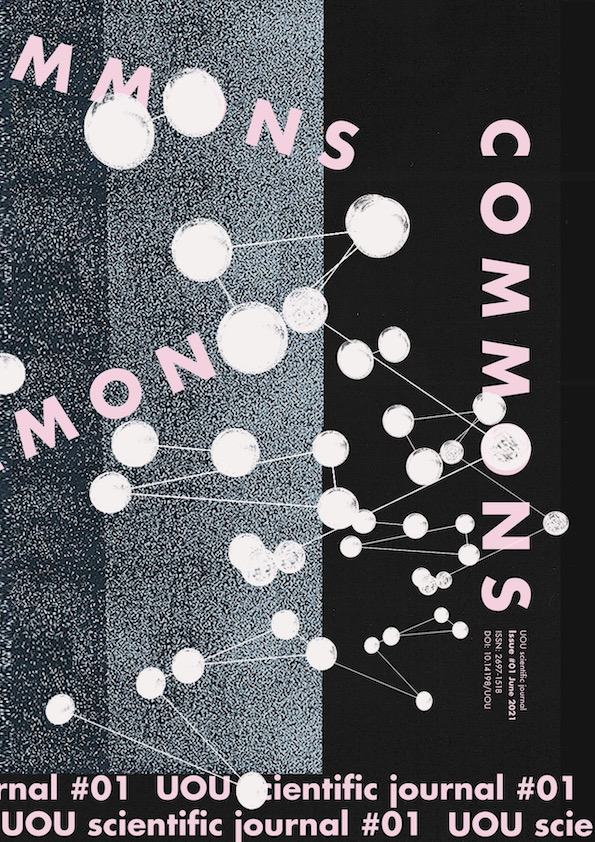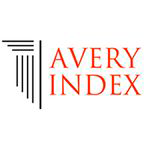From Commons to Urban Commons. Complexity and contradiction in the translation of a concept.
Abstract
https://doi.org/10.14198/UOU.2021.1.05
The notion of commons has been translated, in the last two decades, from the field of natural resources to the urban dimension. As every translation goes, something is lost and something can be found.
The theory of urban commons, far from being completeor exhaustive, has been also linked to the inflated slogan of the right to the city.
This article illustrates how and why the concepts of commons, right to the city and urbancommons are linked together. This insight will allow to understand the differences between these conceptsand, therefore, will point out their complexities and contradictions.
Urbancommons are addressed through the theoretical frame of the concept of commons, studied by Hardin and Ostrom, through the notions of habitand performance as articulated by Hardt and Negri and through the metaphor of thethreshold developed by Stavrides.
The conclusion of the article highlights the relational nature of the urbancommons, and thefindings outline their relation with the concepts of process, time and fugitive democracy.
Downloads
References
Borch , Christian; Kornberger, Martin (ed.). Urban Commons: Rethinking the City. Rouledge, London and New York, 2015.
Brand, Stewart(ed.). Whole Earth Catalog. Princeton University Press, Princeton, 1968.
Brenner, Neil. Theses on Urbanization. Public Culture 25:1 DOI 10.1215/08992363- 1890477. Duke University Press,
Durham, 2013.
Dellenbaugh, Mary et al.(eds). Urban Commons: Moving Beyond State and Market. Birkhauser, Basel, 2015.
Hardin, Garrett. The Tragedy of the Commons. 1968. http://www.garretthardinsociety.org/articles_pdf/tragedy_of_the_ commons.pdf consultato il 16/11/2020
Hardt, Michael. Negri, Antonio. Multitude. Penguin Book, London, 2005. Harvey, David. Rebel Cities. Verso, London,2012.
Lefebvre, Henry. Writings on cities, translated and edited by Eleonore Kofman and Elizabeth Lebas. Blackwell Publisher, Oxford, 1996
Linebaugh, Peter. The MAgna Carta Manifesto: Liberty and Commons for all. University of California Press, Berkley/Los Angeles/London, 2008.
Marcuse, Peter. From critical urban theory to the right to the city. City 13:2-3,185-197. Routledge, London and New York, 2009.
Ostrom, Elinor. Governing the Commons The evolution of the institutions for collective actions. Cmbridge University Press, New York, 1990.
Purcell, Mark. 2002. Excavating Lefebvre: The right to the city and its urban politics of the inhabitant. GeoJournal 58(2): 99–108.
Sen, Amartya. Development as freedom. Oxford University Press, Oxford & New York, 1999. Sorkin, Micheal. All over the Map. Verso, London ad New York, 2011.
Stavrides, Stavros. On urban commoning: the city shapes institutions of sharing. in Ferguson, Francesca 8ed.).
Make_Shift City renegotiating the urban commons. Jovis Berlag GmbH, Basel, 2014.
Stavrides,Stavros. Common-Space-The-City-as-Commons. Zed Books, London, 2016. Stanek, Lukasz. 2011. Henri Lefebvre on space. Minneapolis: University of Minnesota Press.
Susser, Ida. Tonnelat, Stéphane. Transformative cities: The three urban commons Focaal—Journal of Global and Historical Anthropology 66 (2013): 105–132 © Stichting Focaal and Berghahn Books doi:10.3167/fcl.2013.660110
Thomas, R. S. . “Threshold” from The Poems of R. S. Thomas. Copyright © 2001 by Kunjana Jaikin. https://www. poetryfoundation.org/poems/52748/threshold-56d231793e538 consultato il 2020-11-24
Wolin, Sheldon S. Fugitive Democracy And Other Essays. Princeton University Press, Princeton And Oxford, 2016.
weblinks:
https://dictionary.cambridge.org/dictionary/english/common 16/11/2020 https://www.collinsdictionary.com/dictionary/english/commons 16/11/2020 https://www.dictionary.com/browse/right?s=t 16/11/2020 https://www.larousse.fr/dictionnaires/francais/droit/26842 30/03/2021
Downloads
Published
How to Cite
Issue
Section
License
Copyright (c) 2021 Francesco Caneschi

This work is licensed under a Creative Commons Attribution 4.0 International License.
The authors keep their rights upon their work, although they transfer, in a non-exclusive way, the rights of exploitation (reproduction, publication, distribution, public dissemination and presentation) to the Journal. The authors are, therefore, free to enter additional, separate contracts for the non-exclusive distribution of the version of the work published in the Journal (for instance, by hosting in an institutional repository or publication in a book), provided credit is given that the work was initially published in this journal. The works are published under a Creative Commons Attribution 4.0 (CC BY 4.0) license.












